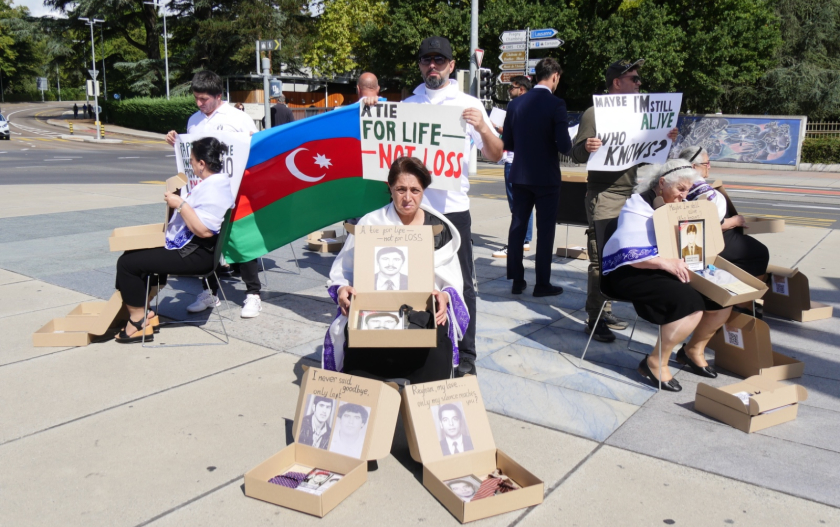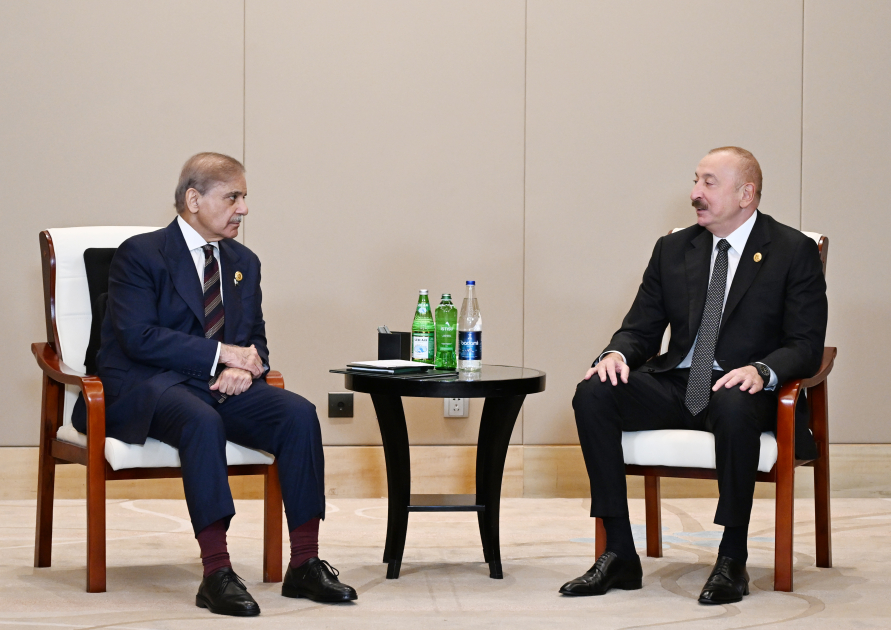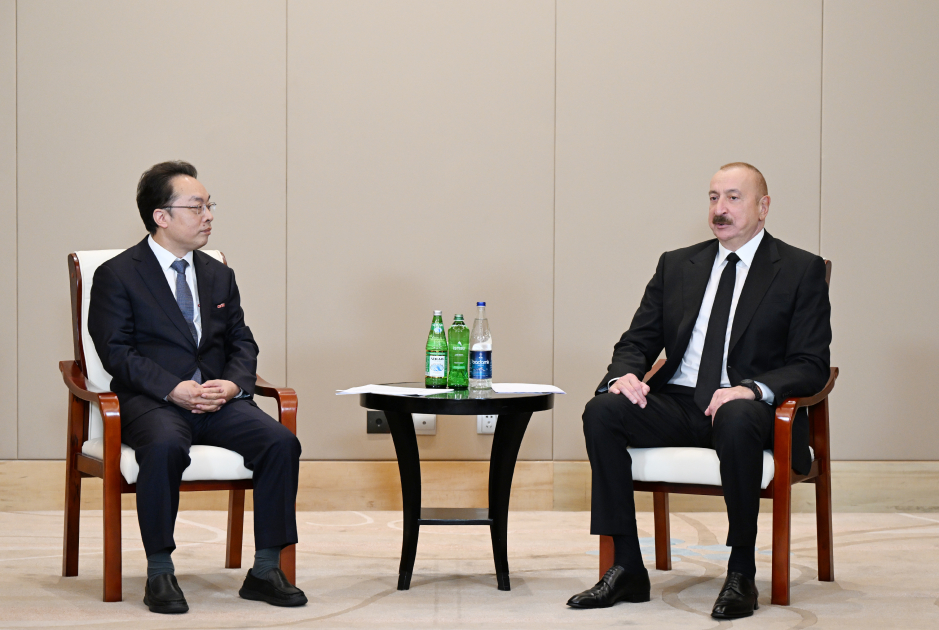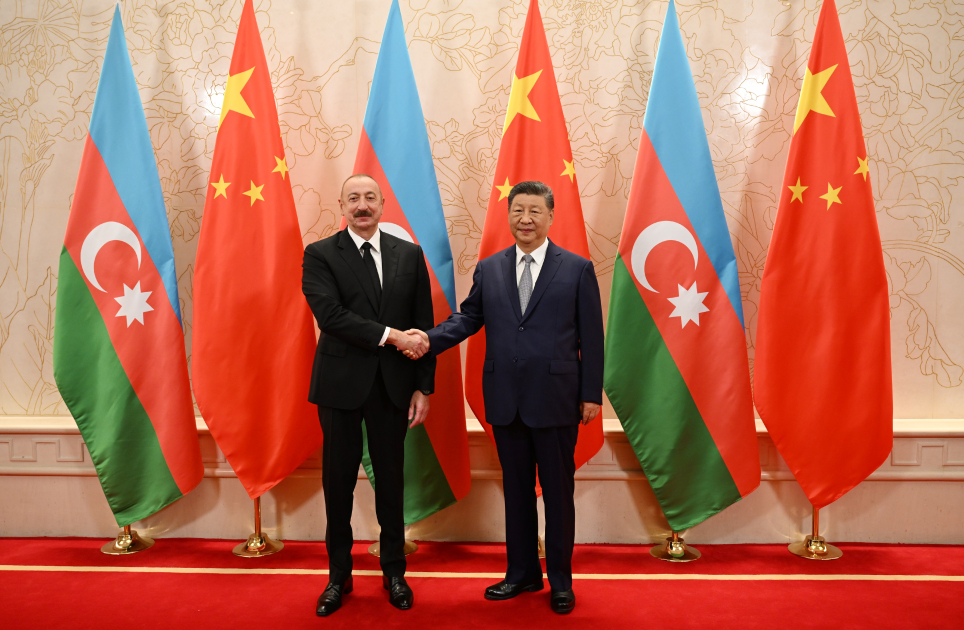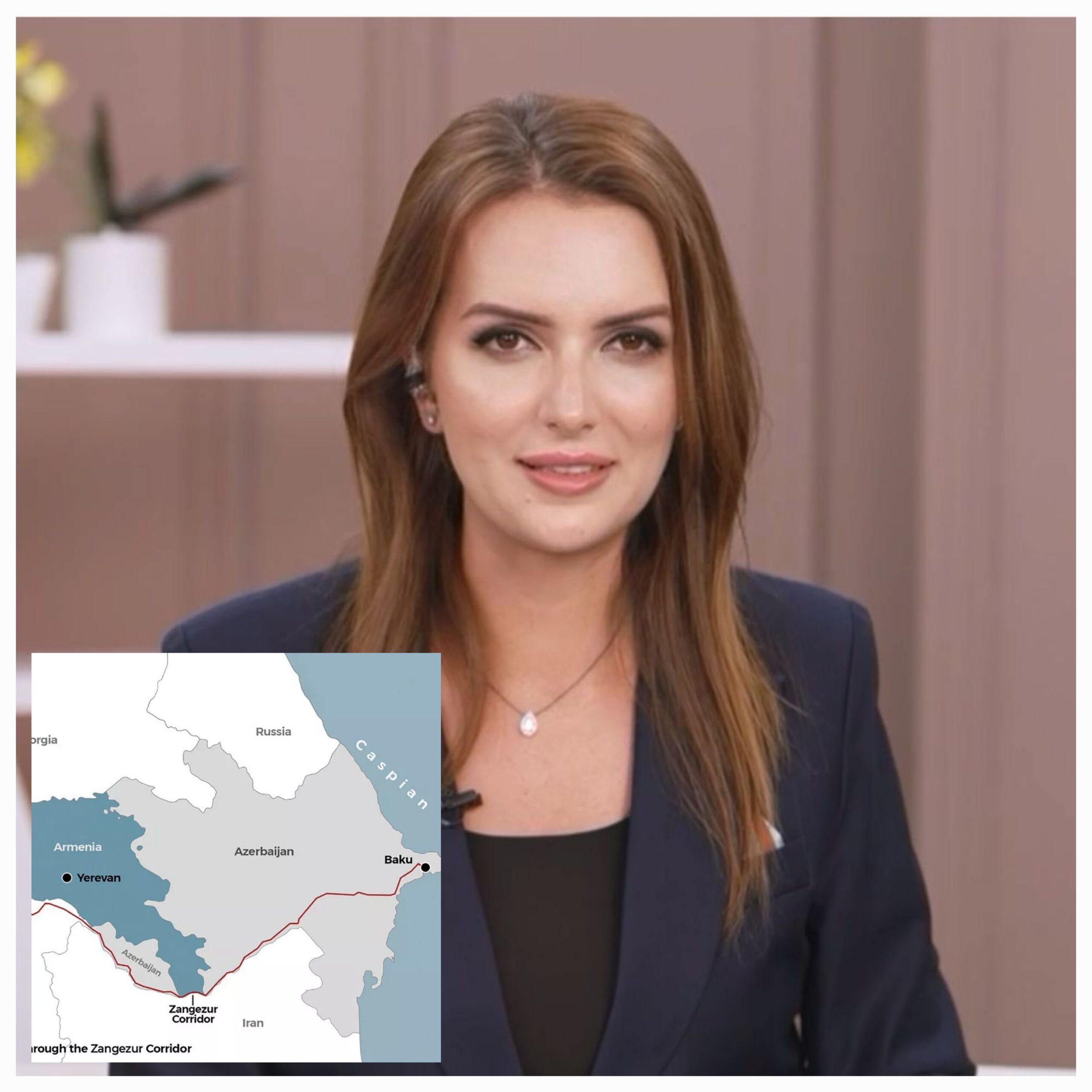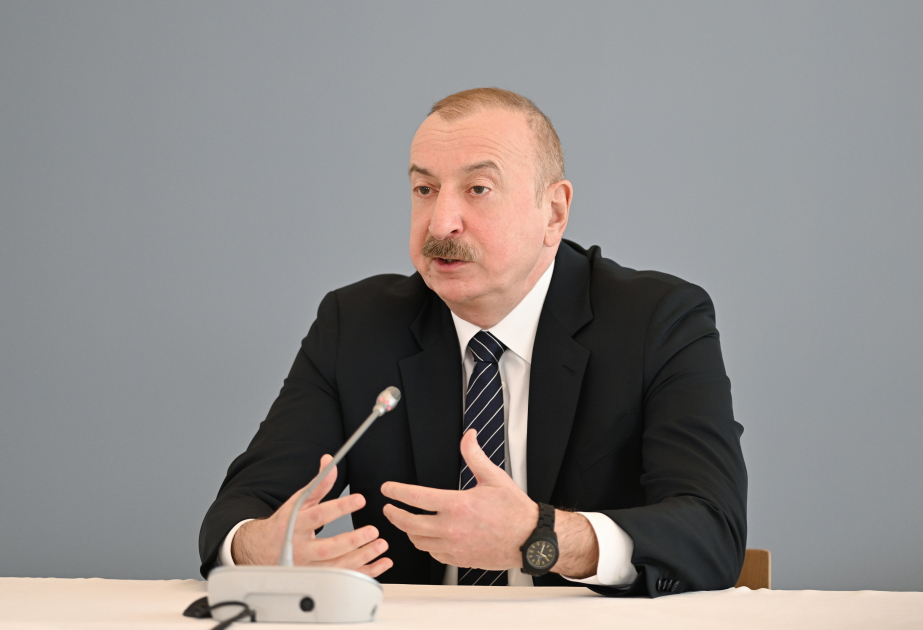Baku, August 31, 2025 – The Europe Today: On the occasion of the International Day of the Disappeared, the “Garabagh Missing Families” Public Union staged a protest in front of the symbolic “Broken Chair” monument near the United Nations’ European headquarters at the Palais des Nations, News Hub Consultants reported.
The demonstration displayed the personal belongings and documents of Azerbaijani missing persons, accompanied by poignant messages highlighting their stories. Among them, a banner for Zahid Gasimov read: “My time stopped! Who noticed?” beside his watch; Gurbat Hasanov’s scarf was accompanied by the words: “No scarf warms me”; while Telman Yusifov’s manuscripts and shirt carried the message: “My story has no end.”
Konul Behbudova, chair of the union, held her missing brother Abbas Behbudov’s documents with a sign reading: “Documents are here, life is missing.” Other family members shared equally moving testimonies: Ilham Dadashov’s mother carried a banner stating “Born to live, not to disappear”; while Azad Jabbarov’s wife displayed her husband’s backgammon dice with the message “Hope is as tiny as these dice.” An empty box represented the Mammadov family, killed in the 1992 Khojaly massacre: “The Mammadovs — a lost family. No graves, only echoes.”
This marked the first overseas protest organized by families of missing Azerbaijanis. Just two days earlier, on August 28, relatives were received at the UN for the first time, where they met with the Secretariat of the Committee on Enforced Disappearances (CED) under the Office of the High Commissioner for Human Rights (OHCHR). Families voiced concerns over declining trust in the International Committee of the Red Cross and called for the appointment of a UN Special Rapporteur on Missing Persons, stressing the global nature of enforced disappearances.
Official figures indicate that 3,990 Azerbaijani citizens remain missing as a result of Armenia’s military aggression, including 71 children, 284 women, and 316 elderly persons. Six went missing during the 44-day war in 2020. Over the past five years, 28 mass graves have been discovered in formerly occupied territories, revealing large-scale killings and inhumane burials. Families demanded that Armenia hand over maps of burial sites and bring to justice those responsible for war crimes, noting that no perpetrators have yet been held accountable.
